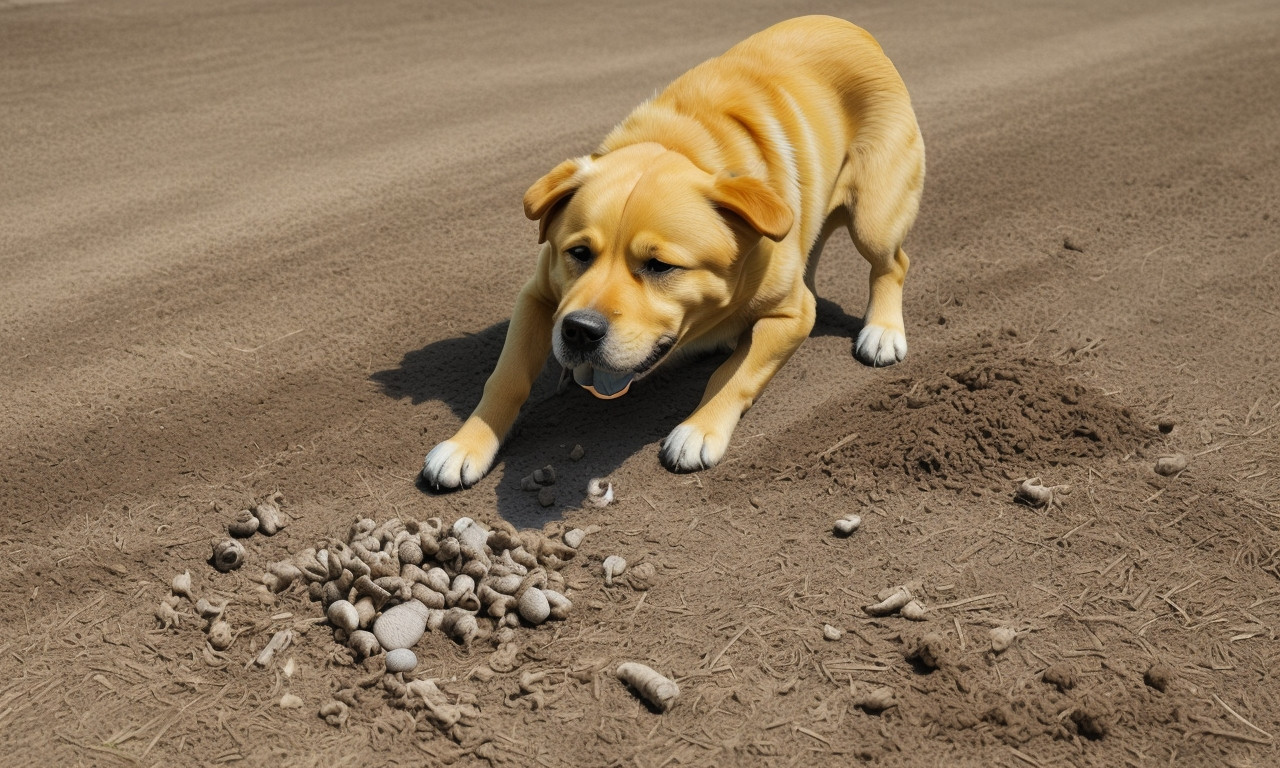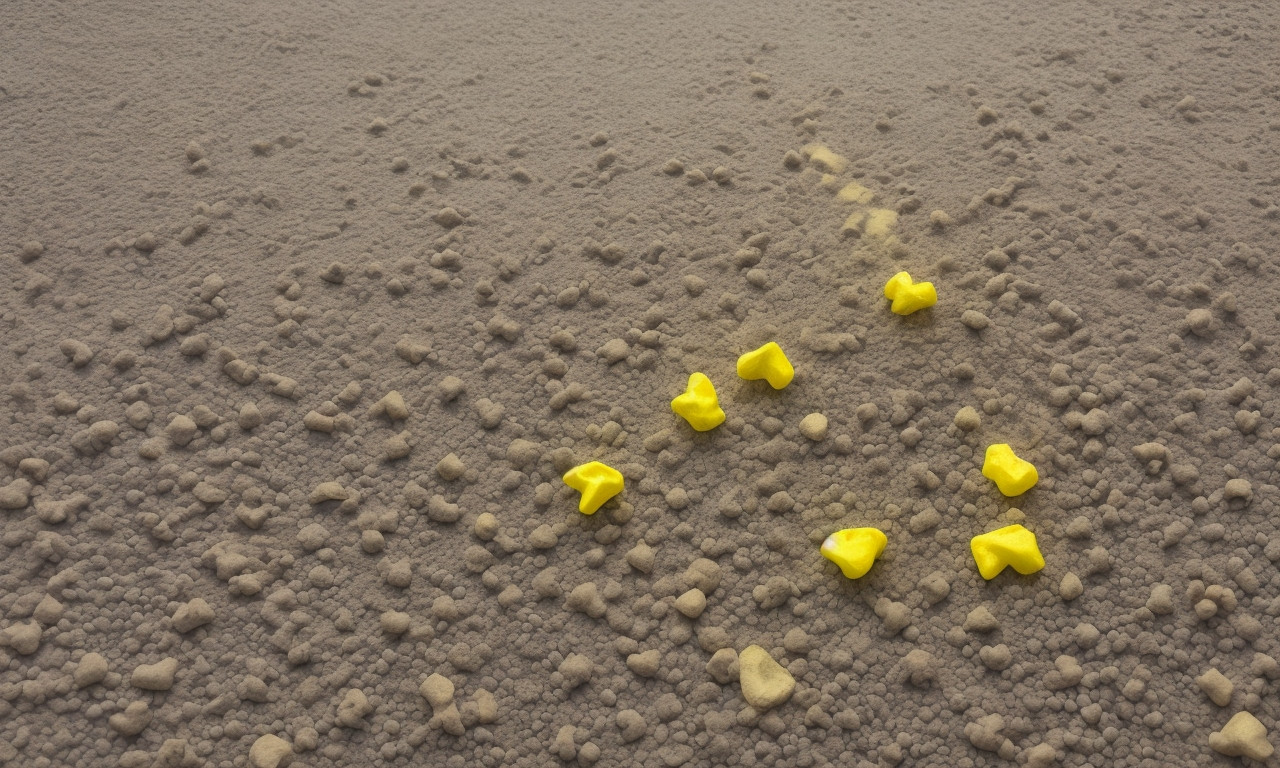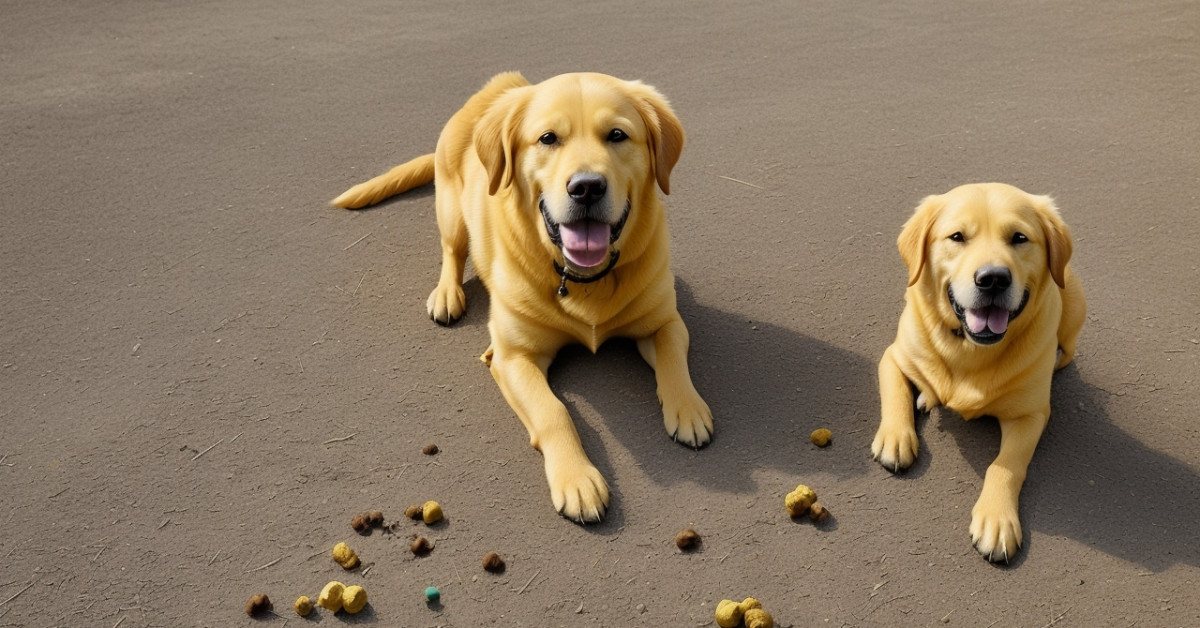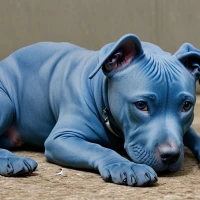Yellow Dog Poop: Meaning & When to Worry - Vet’s Answers Revealed—Ever notice a peculiar yellow hue in your dog’s poop and start to worry? You’re not alone! Yellow dog poop could mean a myriad of things, from dietary issues to underlying health concerns. In this comprehensive guide, our top veterinarians uncover the secrets behind yellow dog poop and let you know precisely when it’s time to take action. Stay tuned to find out what this vibrant color can reveal about your furry friend’s health and wellbeing. This is one blog you don’t want to miss!
What Is Yellow Dog Poop?

When you notice yellow dog poop, it can leave you puzzled and concerned. So, what is yellow dog poop? While it might look odd, it’s not always a cause for alarm. Often, it indicates dietary issues, like a sudden change in food or a minor gut imbalance. However, persistent yellow poop could signal something more serious, like liver problems or gastrointestinal infections. It’s essential to keep an eye on your dog’s overall behavior and health. If yellow stools continue or are accompanied by other symptoms, consulting a vet is the best course of action for peace of mind and your pet’s well-being.
What Are the Signs of Yellow Dog Poop?

Yellow dog poop can be a puzzling sight for pet owners. If you’re wondering, “What Are the Signs of Yellow Dog Poop?” it’s usually your dog’s way of telling you something might be off. Sometimes, a change in diet can cause this unusual color, but it might also indicate digestive issues or infections. Yellow poop can be accompanied by other signs like lethargy or a loss of appetite, which means it’s time to consult your vet. Don’t panic, but do take note—your furry friend’s unusual waste could be a clue that they need a little extra care.
What Are the Causes of Yellow Dog Poop?

Ever wondered what causes yellow dog poop? It might surprise you, but this odd color can actually tell you a lot about your dog’s health. Various factors like diet, stress, or even parasites could lead to this unusual hue. Sometimes, it’s nothing serious—perhaps just a new treat or a sudden change in food. However, yellow poop can also indicate bigger issues like liver problems or infections. Knowing what are the causes of yellow dog poop helps you figure out when to worry and consult your vet. Keep an eye on those stools; they offer more clues than you might think!
1. Infections
Yellow dog poop can be puzzling for pet owners. While a shift in color might not always spell trouble, it’s essential to understand what it could mean. Often, infections are a primary concern when yellow hues appear. Such a change might indicate a possible intestinal infection or liver issues. If your pup shows other symptoms like vomiting, lethargy, or loss of appetite alongside yellow poop, it’s crucial to visit a vet. They can determine if infections or other health concerns are present and guide you on appropriate care. Always stay alert to changes in your dog’s stool, as it’s a vital health indicator.
2. Liver Disease
Noticing yellow dog poop can be concerning, but it’s essential to understand what it could mean. One common reason could be dietary changes, but sometimes it indicates a more serious issue like liver disease. If your dog’s stool color shifts and other symptoms like vomiting, loss of appetite, or lethargy appear, it’s worth a trip to the vet. A professional can provide answers, ensuring your furry friend’s health isn’t at risk. It’s better to stay informed and proactive about these signs rather than worried and unsure. Always seek a vet’s advice when in doubt.
3. Parasites
Yellow dog poop can be a bit alarming for pet owners. It’s crucial to understand what it means and when it’s a cause for concern. Sometimes, a change in diet or mild digestive upset might be the culprit. However, if you notice yellow stools accompanied by other symptoms like weight loss, lethargy, or vomiting, it could indicate a more serious issue like parasites. Parasites can interfere with nutrient absorption, leading to changes in stool color and consistency. Always consult your vet for accurate diagnosis and treatment. Keeping an eye on your dog’s poop can tell you a lot about its overall health!
4. Inflammatory Bowel Disease or Irritable Bowel Syndrome
Yellow dog poop can be a puzzling sight for any pet owner, but understanding its meaning can help. Sometimes, yellow dog poop could be a sign of digestive issues like Inflammatory Bowel Disease or Irritable Bowel Syndrome. When your furry friend’s stool changes color, it’s not always a reason to panic, but it’s good to be aware. Consistent yellow poop might indicate that something’s off with their digestive system. Most times, it’s related to diet changes, stress, or something they’ve eaten. However, if this yellow hue persists, it’s worth getting a vet’s insight to ensure there’s no underlying condition such as Inflammatory Bowel Disease or Irritable Bowel Syndrome.
5. Pancreatitis
Yellow dog poop can be alarming for any pet owner, leaving you wondering if something’s wrong. It turns out, the color can tell a lot about your dog’s health, especially when it comes to their digestive system. One concern is pancreatitis, a condition where inflammation hampers the pancreas’s function, sometimes showing up as yellow stools. While not always a definitive sign, if your dog’s poop is consistently yellow and accompanied by symptoms like vomiting, lethargy, or loss of appetite, it’s best to consult a vet. Prompt attention can help manage pancreatitis effectively and keep your furry friend healthy.
6. Gallbladder Disease
If you’ve noticed your dog’s poop has a yellow tint, it could be a sign of something more than just a diet change. Yellow dog poop can indicate various health issues, one of which is gallbladder disease. Gallbladder disease in dogs can lead to bile not being properly processed, turning your dog’s stool yellow. Keep an eye on your pet for other symptoms such as vomiting, loss of appetite, or lethargy. If you suspect gallbladder disease, it’s crucial to consult your vet for a proper diagnosis and treatment options. Your dog’s health is always worth the extra attention!
Diagnosis of Yellow Poop Issues in Dogs

Ever noticed your dog’s poop looking unusually yellow? While it might seem alarming, there are various reasons this can happen. The color can be influenced by the diet, liver function, or even stress levels in dogs. Vets often start with a thorough diagnosis of yellow poop issues in dogs by examining their food and health history. In some cases, it could signal a minor dietary problem, but sometimes it’s a clue about more serious underlying conditions. Always consult your vet for a professional opinion to ensure your furry friend stays healthy and happy. So, don’t panic – just stay informed and proactive!
How Do I Care for a Dog with Yellow Poop?

Yellow dog poop can be concerning, and it’s essential to know when to worry. Typically, yellow stool indicates issues like dietary changes, stress, or more serious health concerns like liver problems. Observing your dog’s behavior and poop consistency can provide crucial clues. If the yellow poop persists, consulting a vet is a good idea. So, how do I care for a dog with yellow poop? Start by ensuring they have a balanced diet and plenty of hydration. Keep an eye on any other symptoms like lethargy or vomiting, and always feel free to reach out to your vet for peace of mind.
Frequently Asked Questions (FAQ)

Yellow dog poop can be puzzling and concerning for pet owners. Understanding the reasons behind this color change is essential. Frequently, yellow poop might indicate dietary issues, infections, or liver problems. To help ease your worries, our vet’s answers delve into the frequently asked questions (FAQ) covering causes, potential treatments, and when it’s time to consult a veterinarian. By addressing common concerns, you’ll be better equipped to take care of your furry friend. Remember, a little knowledge can go a long way in ensuring your pup’s health and happiness.
How long can my dog have yellow poop for?
It’s not uncommon to panic when you notice yellow dog poop. You might be wondering, “How long can my dog have yellow poop for?” Generally, yellow stool can be due to dietary changes, a sensitive stomach, or minor infections. If it lasts just a day or two, it’s usually nothing to worry about. However, if it persists beyond 48 hours or is accompanied by other symptoms like vomiting or lethargy, it’s time to consult a vet. A professional can determine if there’s an underlying issue that needs attention. Remember, keeping an eye on your dog’s digestive health is key to their overall well-being.
What color dog poop is a cause for concern?
Yellow dog poop can be a quirky yet concerning discovery in your pet’s daily routine. So, what color dog poop is a cause for concern? Yellow, of course! This hue often suggests digestive issues, like a rapid transit of food through the gut or potential dietary intolerances. While a one-off episode might not be alarming, consistently yellow stools warrant attention. It could be a sign of an underlying health issue, so keep an eye out and consult your vet if the condition persists. Understanding these subtle signs helps ensure your furry friend’s health is in tip-top shape. Your vet’s guidance can be invaluable.
Is yellow dog poop contagious?
Yellow dog poop can be concerning for any pet owner. It often indicates dietary issues or minor health problems, but it can sometimes signal something more serious. You might wonder, “Is yellow dog poop contagious?” Generally, it isn’t, but certain underlying conditions causing the color change could be. Don’t panic, though. Consulting your vet is essential for an accurate diagnosis. They can determine if it’s a simple dietary adjustment or a symptom of something requiring closer attention. Keeping an eye on your pet’s overall health and behavior will also help you catch any issues early. Always prioritize your pup’s well-being.
Conclusion

Yellow dog poop can be a curious and alarming sight, leaving many pet owners wondering about its meaning. Often, this could indicate dietary changes, food allergies, or digestive tract issues. It’s essential to monitor your dog’s behavior—if they seem unbothered and playful, it might just be a temporary issue. However, if yellow poop persists or is accompanied by vomiting or lethargy, it’s time to consult your vet. In conclusion, while occasional yellow dog poop might not be a reason for immediate worry, persistent changes should always prompt professional advice to ensure your furry friend’s health and well-being.










